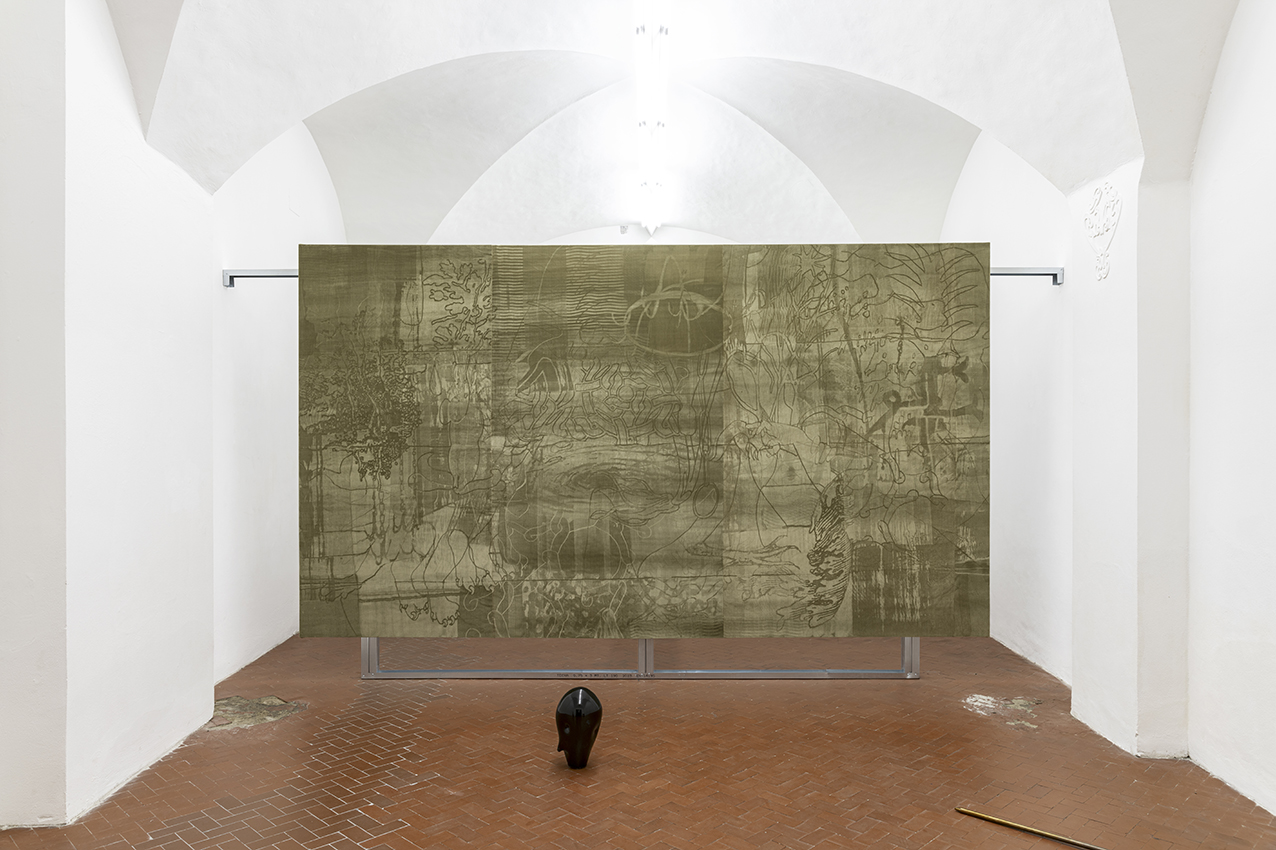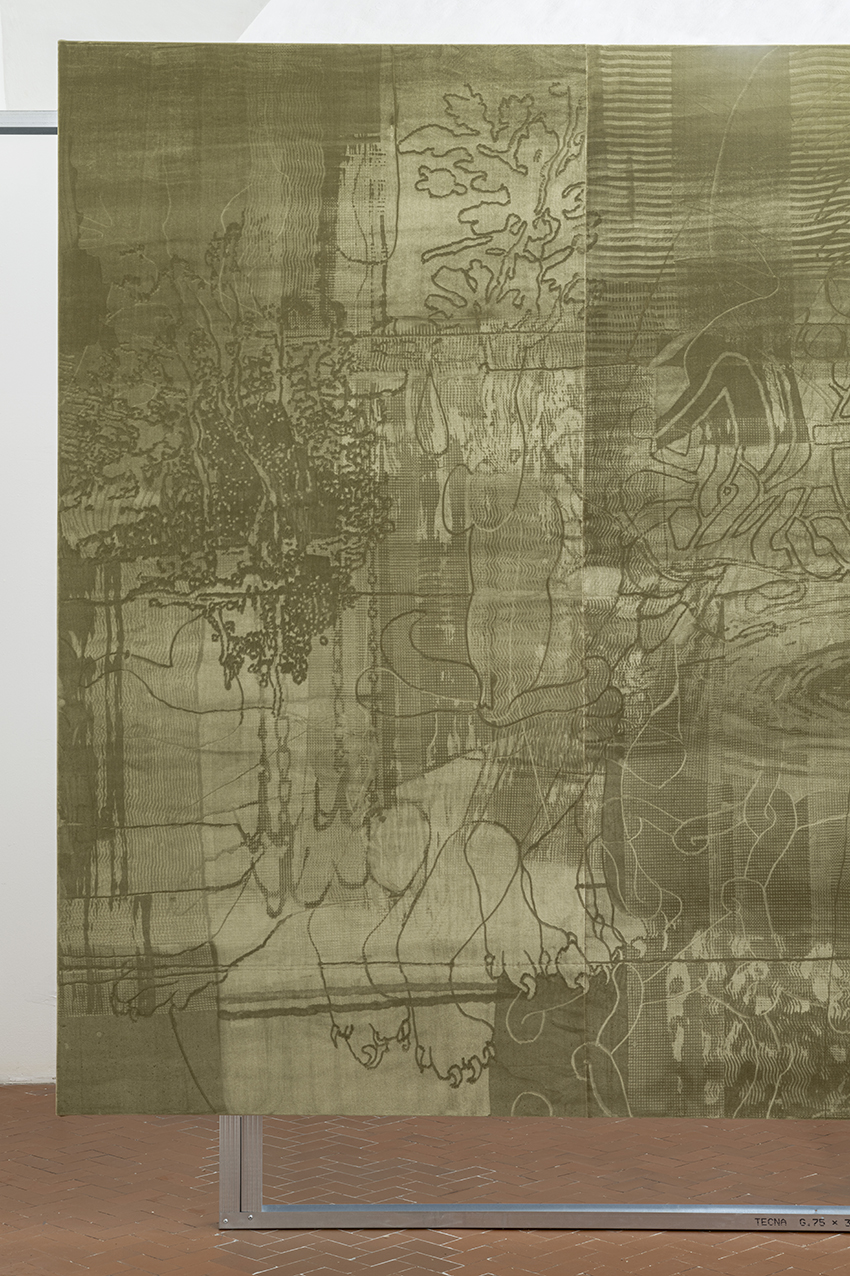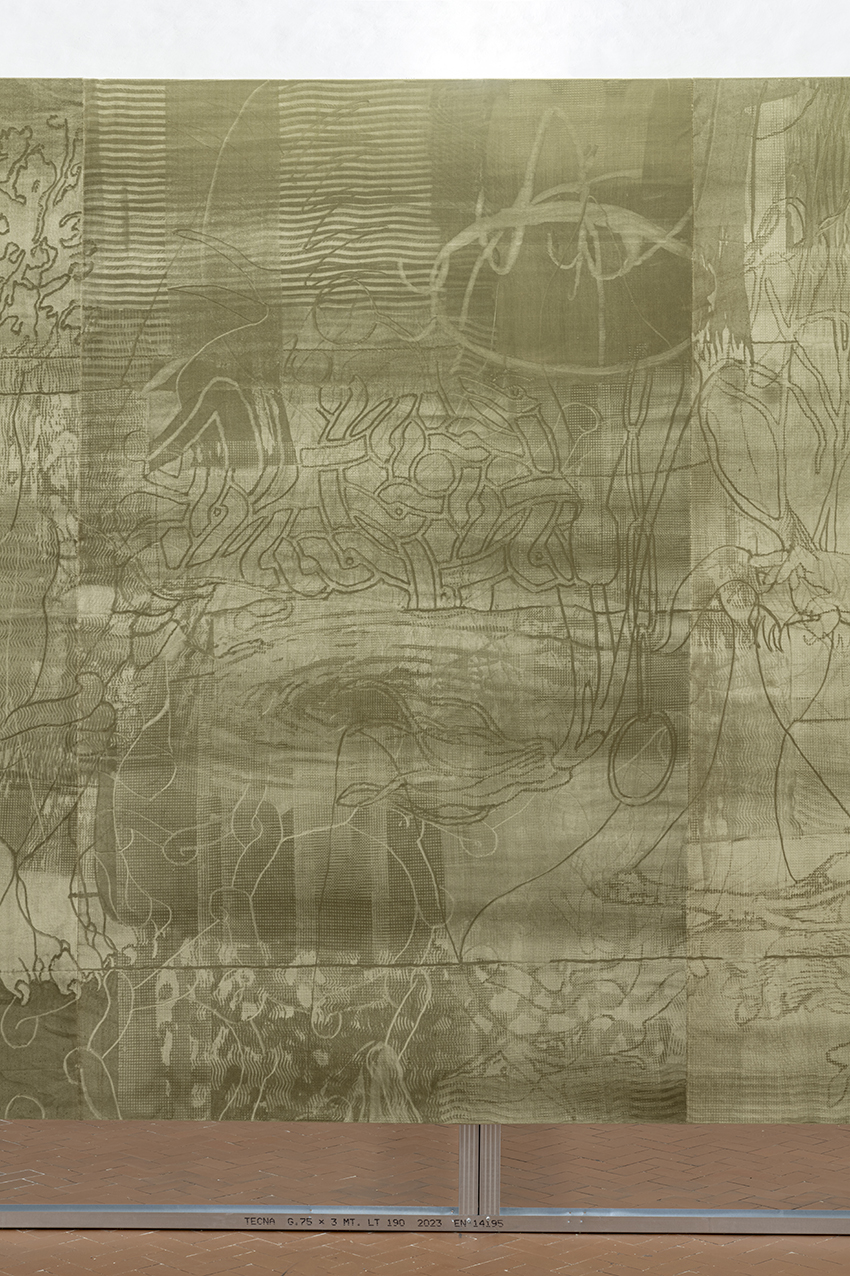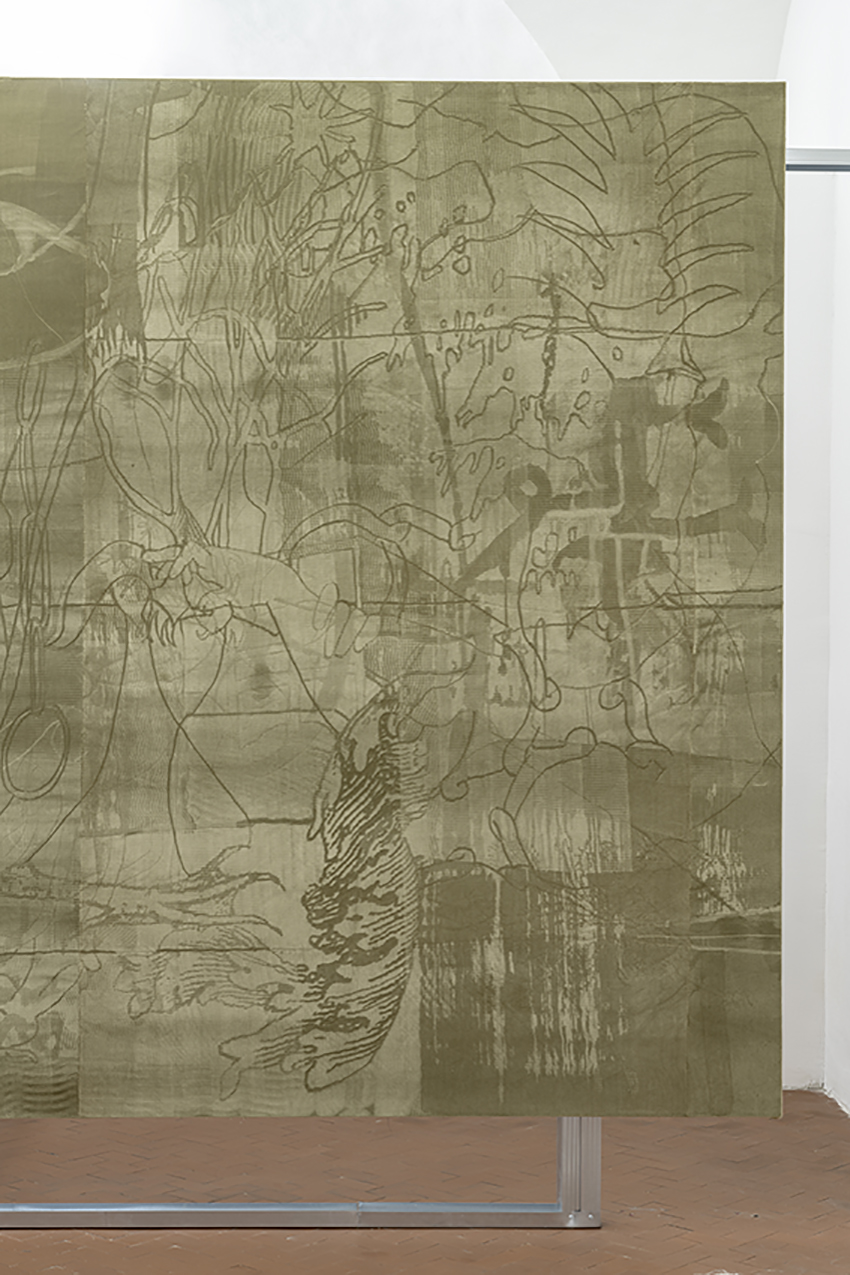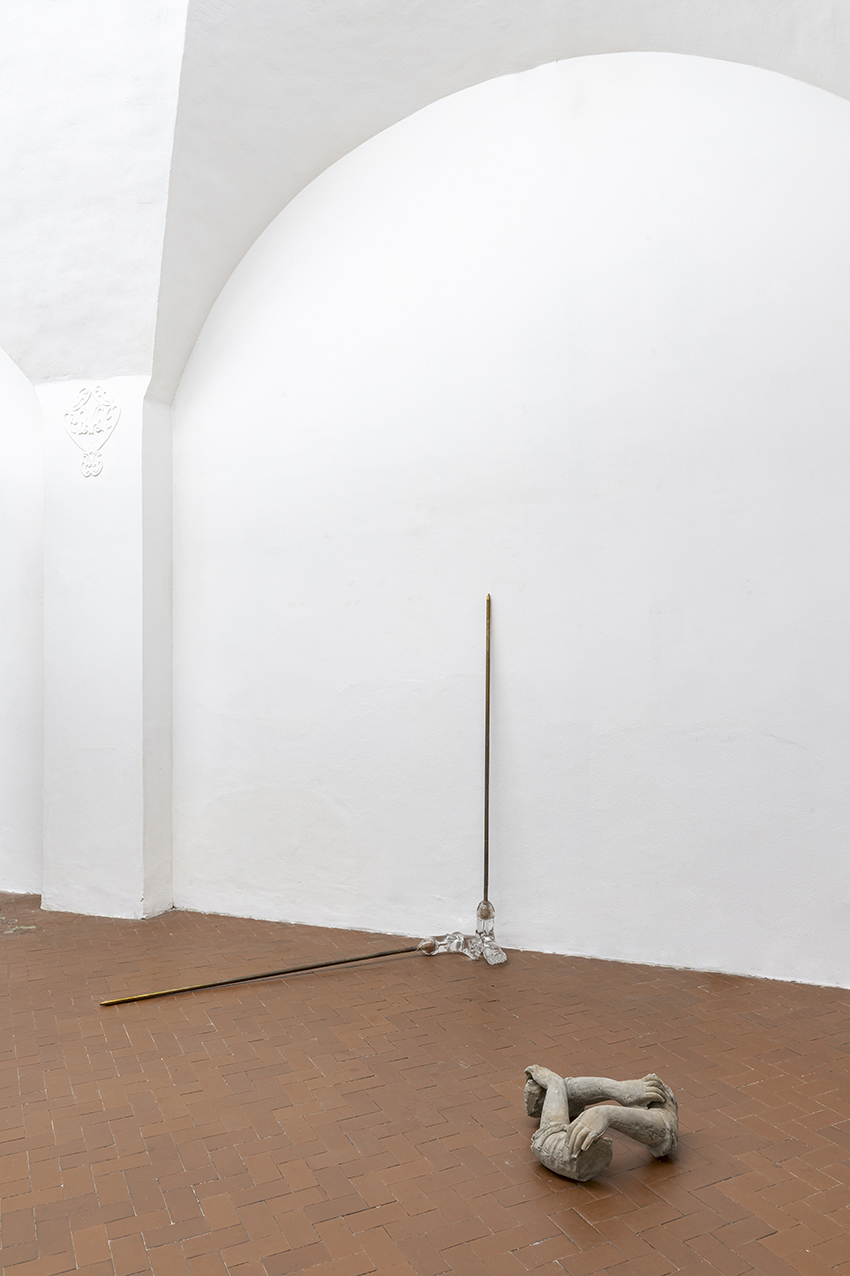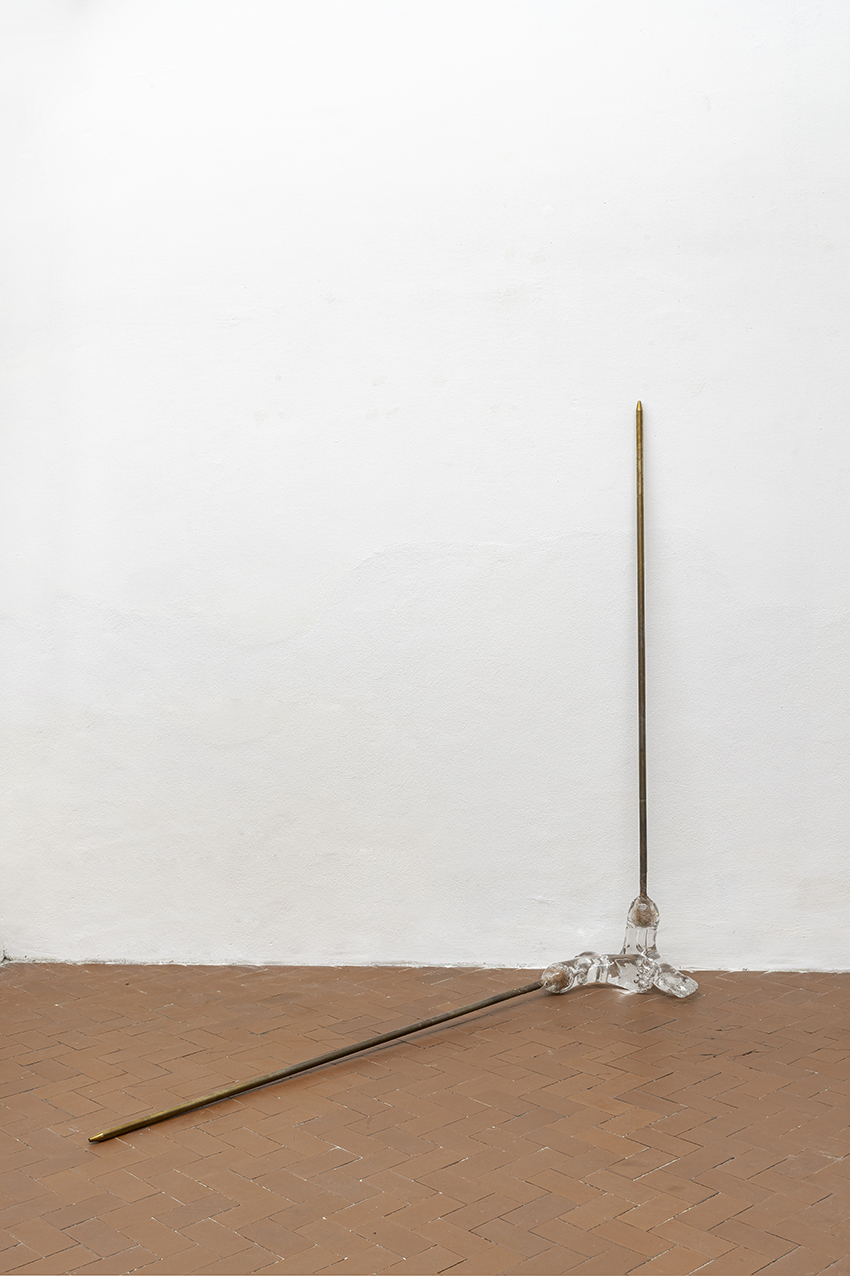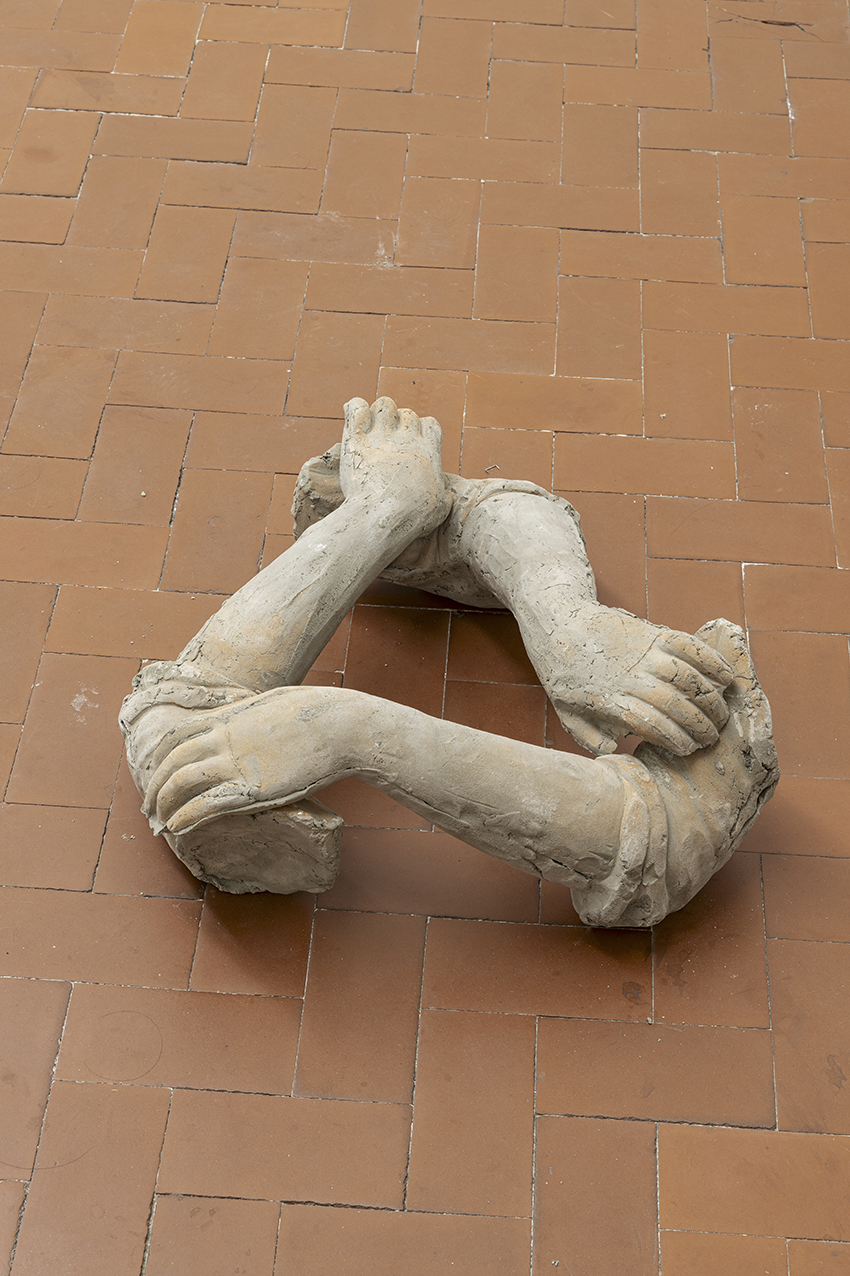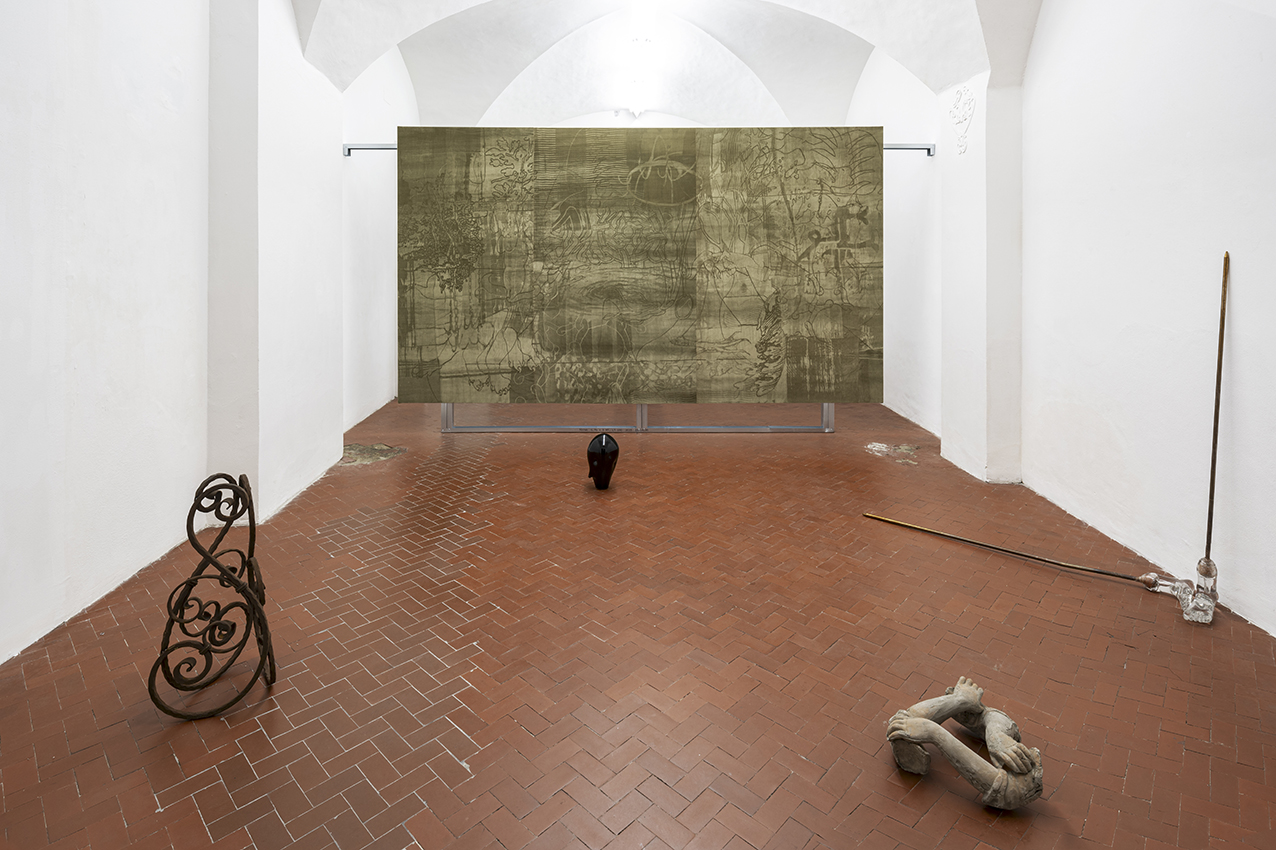Bora Baboci, João Freitas, Enej Gala, Albano Hernandez, Mehdi-Georges Lahlou, Mirthe Klück, Leonardo Meoni, Giovanni Oberti, Oscar Abraham Pabón, Eugenia Vanni, Xiao Zhiyu, Francesco Carone
Bora Baboci, Adam Bilardi, Enej Gala, Cecilia Granara, Julien Monnerie, Jessy Razafimandimby, Ambra Viviani
Giulio Delvè, João Freitas, Mirthe Klück, Marco Andrea Magni, Giovanni Oberti, Oscar Abraham Pabón, Namasal Siedlecki, Jamie Sneider, Eugenia Vanni, Xiao Zhiyu
João Freitas, Mirthe Klück, Marco Andrea Magni, Oscar Abraham Pabón, Eugenia Vanni
Mirthe Klück, Marco Andrea Magni, Eugenia Vanni, Serena Vestrucci
Sara Enrico, Helena Hladilovà, Pietro Manzo, Giovanni Oberti
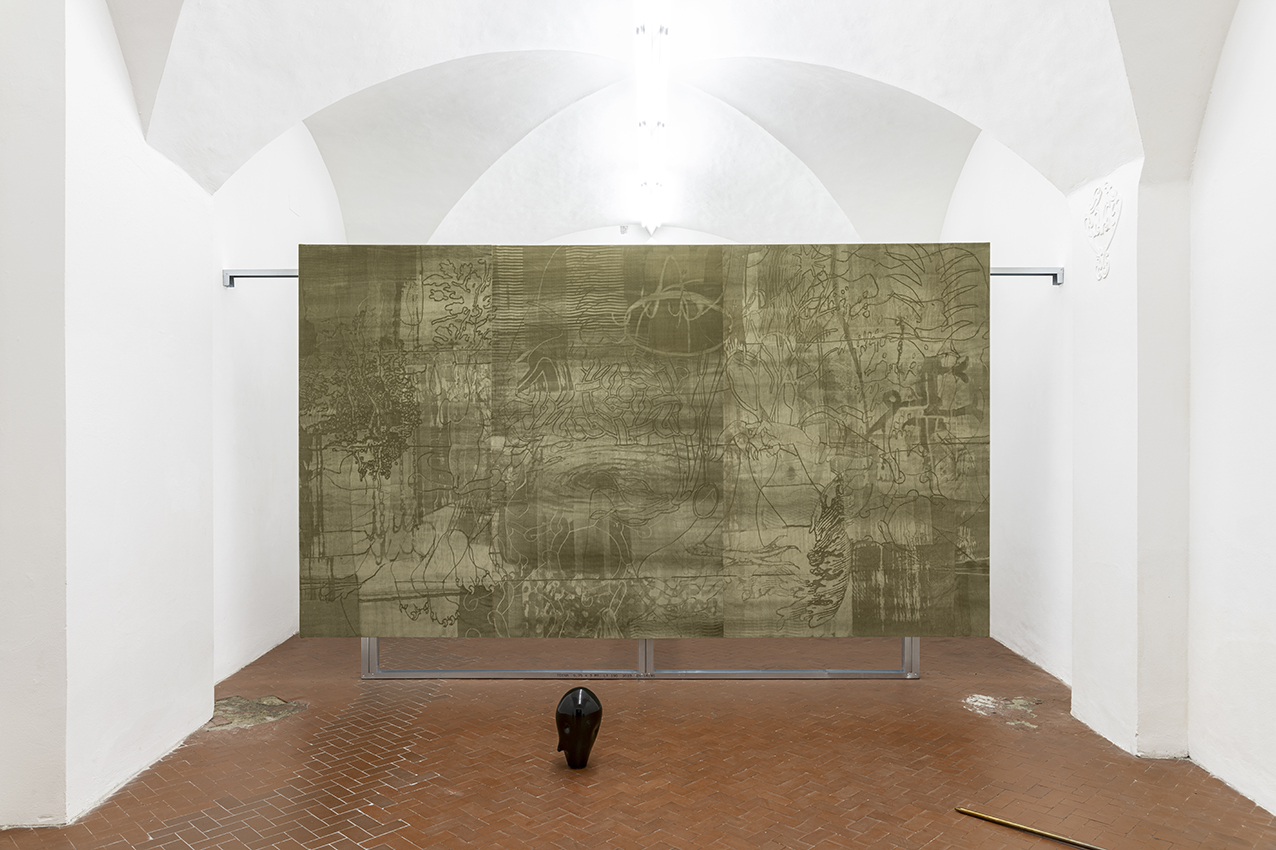
First and foremost for us it was the idea of a landscape, and perhaps even before that the idea of movement. Rather than an idea, we might say a sensation, a breeze blowing in something new, or perhaps blowing something out, too. Also, clearly, right from the start there was this idea of in and out, an invisible boundary inhabited by the wind, alongside places and things. And there was also the idea of the town, or the city, it was always just an image: the name was unknown to us, but we could hear its noises, smell its smells.
At first it was an exercise involving the landscape, space, and the way this becomes broken up.
What happens if we take things out of their places: we imagined the mark they would leave in the ground, and we dreamed we were digging our fingers into it. Then there were jottings, which have become images: how can we describe the shadow of our steps? The air that fills oak trees?
Then they asked us whether we knew time, its time: it inhabits all the centuries, the years, and the months.
The day that was Monday in the dream,
was the first day of sunshine, and it was cold.
Night-time,
cars scored the walls with their lights, piercing the blankets
And by day I sought the shadow of people's steps, the stuff that fills space and lives between things
I must have been twenty-five
and the moon was falling;
the moon was falling, and I never had the time.
I watched the smell of fullness that heralds rain
I waited until it rained, on the roof of the outskirts, so that the walls could talk to each other,
and the fold below your eyes could capture the light.
Then one day I realized
the dripping wet folds on the backs of the workers
empty clothes catching the wind
the shadows, suspended, of flights of steps
One day I understood
That first of all there are places,
followed by the people who live in them
And that there, where the grey lies creeping, animals in their cages must have dreams akin to mine.
I climbed onto his legs,
the legs, without a shadow of doubt, of a giant.
What am I to do with these impossible legs,
with feet made of the wind,
I can go no further than the outer enclosure, I cannot get out and beyond
where animals chase each other, and disappear,
where dogs' bones,
football games,
and a bare skeleton
in the corners of the earth
that nobody inhabits,
and all the other stories.
“The darkness stretches over all like a livid shadow, but I can do nothing”
I shut my eyes.
How are we to describe the land of noises,
that becomes broken,
that moves,
that gives us sustenance, shrinking,
that, ultimately, absorbs us,
and renders us immortal.
“But I can do no more than this.”
When I touch those hands roughened by the ground
I see a city in the midst of the sea,
Now that last night I dreamed that I was having a dream about you, and I encountered your hands,
your own hands,
bathed by a breath of kisses between the fingers,
now the night, is the city of the wind.
The moon was falling.
Micol Teora and Leonardo Meoni
